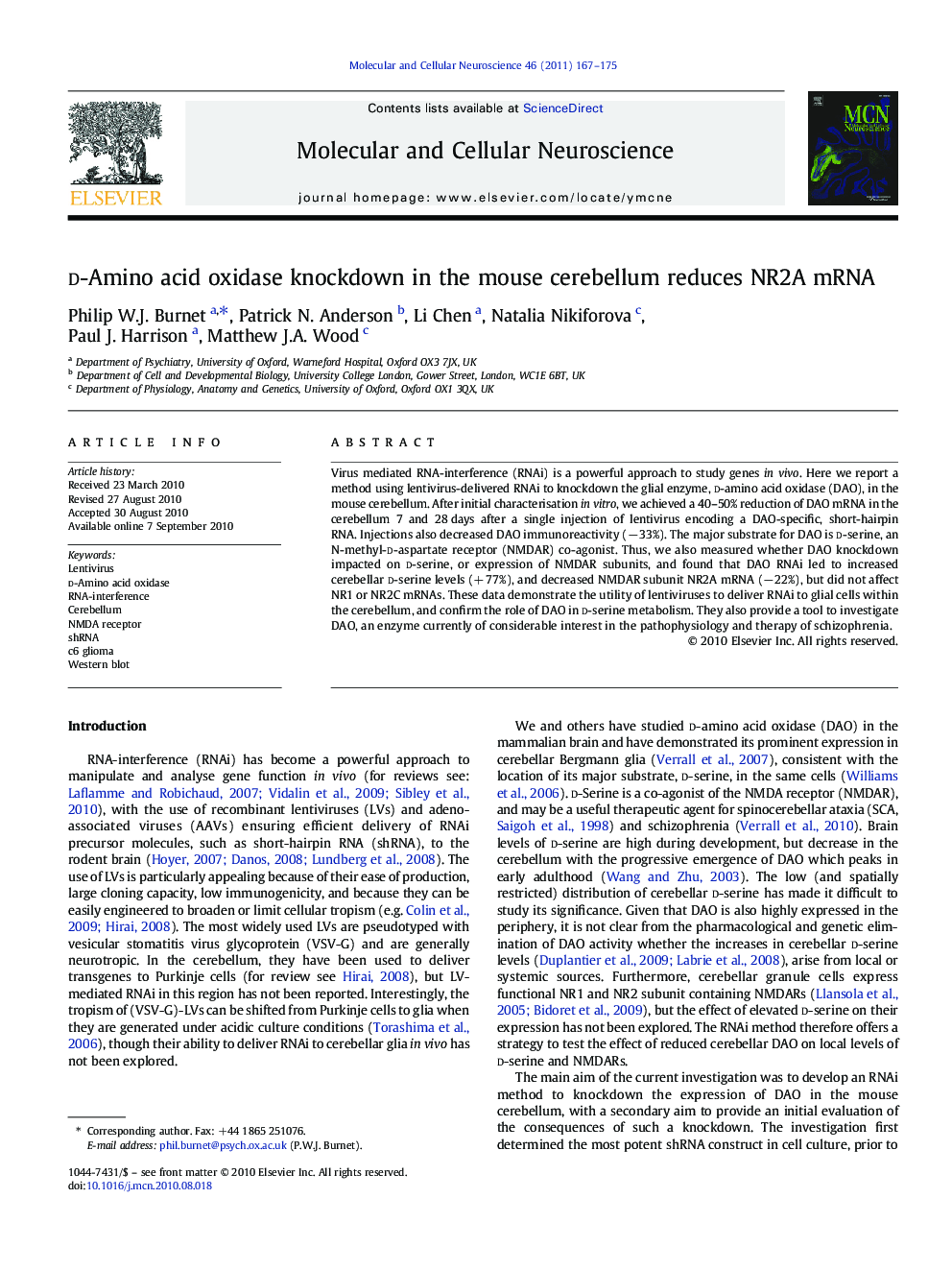| Article ID | Journal | Published Year | Pages | File Type |
|---|---|---|---|---|
| 10956634 | Molecular and Cellular Neuroscience | 2011 | 9 Pages |
Abstract
Virus mediated RNA-interference (RNAi) is a powerful approach to study genes in vivo. Here we report a method using lentivirus-delivered RNAi to knockdown the glial enzyme, d-amino acid oxidase (DAO), in the mouse cerebellum. After initial characterisation in vitro, we achieved a 40-50% reduction of DAO mRNA in the cerebellum 7 and 28Â days after a single injection of lentivirus encoding a DAO-specific, short-hairpin RNA. Injections also decreased DAO immunoreactivity (â33%). The major substrate for DAO is d-serine, an N-methyl-d-aspartate receptor (NMDAR) co-agonist. Thus, we also measured whether DAO knockdown impacted on d-serine, or expression of NMDAR subunits, and found that DAO RNAi led to increased cerebellar d-serine levels (+Â 77%), and decreased NMDAR subunit NR2A mRNA (â22%), but did not affect NR1 or NR2C mRNAs. These data demonstrate the utility of lentiviruses to deliver RNAi to glial cells within the cerebellum, and confirm the role of DAO in d-serine metabolism. They also provide a tool to investigate DAO, an enzyme currently of considerable interest in the pathophysiology and therapy of schizophrenia.
Keywords
Related Topics
Life Sciences
Biochemistry, Genetics and Molecular Biology
Cell Biology
Authors
Philip W.J. Burnet, Patrick N. Anderson, Li Chen, Natalia Nikiforova, Paul J. Harrison, Matthew J.A. Wood,
